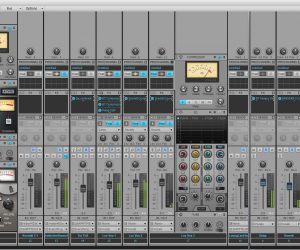
Review: Arturia iSEM Virtual Instrument
Get back in touch with Oberheim’s classics.
Oberheim came up with some ripper synths in its day; the Expander module was brilliant, and the OB-8 was incredible — as long as you could keep one running — it wasn’t until the Matrix 6, with it’s DCOs that Oberheim synths became reliable. The Matrix 1000 rack unit was possibly the company’s last real Oberheim, released when founder, Tom Oberheim, relinquished ownership of the company while remaining a creative force. Not long after, Tom left the company to form Marion Systems.
Deeper in Oberheim’s past was a lesser known synth, the 4-Voice (or 4V), manufactured during the mid 1970s, and one of Oberheim’s first. This was accompanied by an identically configured (and optional) four-voice expansion module dubbed the SEM (Synthesizer Expansion Module). As it transpires, Tom Oberheim has a hardware remake of the synth slated for imminent release.
The iSEM, by Arturia, is an iPad recreation of the 4V, and a twin of Arturia’s DAW based SEM-V — you can even swap patches between each. The synth features two oscillators capable of sawtooth and variable pulse-width waves, a sine wave LFO, two envelope generators, and a 12dB/octave filter capable of low-, high-, band-pass and notch filtering — not bad for a machine of this vintage. The software incarnation adds a bunch of contemporary features such as greater polyphony, more LFO options, sub oscillator, portamento and an arpeggiator, along with delay and chorus effects. I’m in two minds when it comes to the additional features, given the architectural restrictions of the original would have created particular sounds.
The iPad-specific additions however, are entirely welcome: WIST sync, MIDI mapping of all controls, performance controller setups, an eight-way mod matrix, along with Audiobus and Apple’s Inter-App audio pipeline compatibility to latch the iSEM in with GarageBand. In other words, the iSEM will work with all the current iOS interoperability standards. Cheerfully cheap and sounds fab.
















RESPONSES